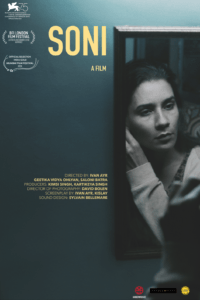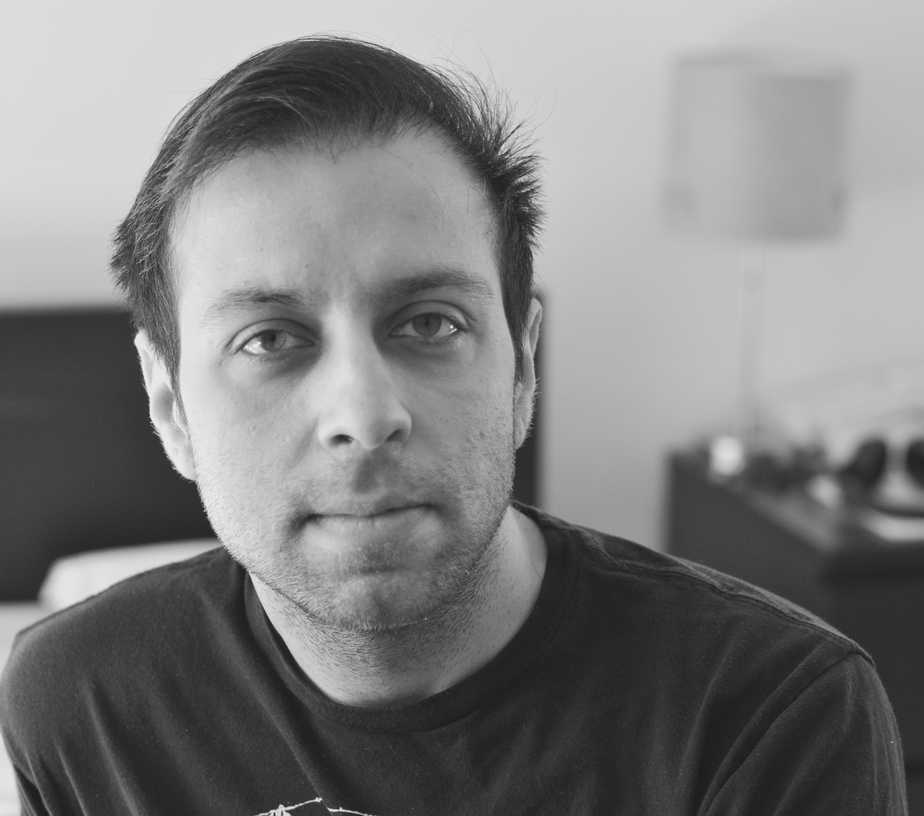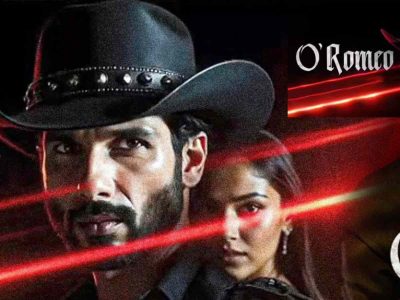Filmmaker Ivan Ayr’s debut feature Soni tells the tale of two policewomen in Delhi who combat sexual harassment and gender stereotyping
 He draws inspiration from the works of renowned Iranian filmmaker Jafar Panahi. “Panahi’s work delicately and most accurately reflects the everyday challenges people face, the restrictions imposed upon them and so on,” says Punjab-born filmmaker Ivan Ayr. In fact, his debut feature film Soni – which had its world premiere at the 75th Venice Film Festival – has been shot in a way which blends reality and fiction, using subtle techniques which create realism in the film.
He draws inspiration from the works of renowned Iranian filmmaker Jafar Panahi. “Panahi’s work delicately and most accurately reflects the everyday challenges people face, the restrictions imposed upon them and so on,” says Punjab-born filmmaker Ivan Ayr. In fact, his debut feature film Soni – which had its world premiere at the 75th Venice Film Festival – has been shot in a way which blends reality and fiction, using subtle techniques which create realism in the film.
Soni, starring Geetika Vidya Ohlyan and Saloni Batra, explores the lives of two Delhi policewomen and how they react to the rising tide of sexual violence that has constantly put the city under the spotlight. The filmmaker says that the film is an attempt to understand the rage policewomen feel against the sexual violence in the city while at the same time being saddled with the responsibility to enforce and uphold the law. For him, this tussle of emotions, he believes, was worth exploring.
It is among the nine films shortlisted for the Oxfam Best Film on Gender Equality at MAMI 2018. The theme for this year is ‘Cinema Beyond Stereotypes’. Ayr feels that breaking stereotypes is not that tough once you have established the characters as human beings. “But the problem is whenever we try to break one stereotype, we create another. Indian cinema must fight and break stereotypes against itself, more than anything.”
Also, the film was also selected for the Work in Progress Lab of the National Film Development Corporation’s (NFDC) Film Bazaar in 2017. In a conversation with Patriot, filmmaker Ivan Ayr talks about how he came up with the story, the challenges he faced while shooting, how he created realism using filming techniques and more.
How did you come up with the story idea for the film?
It started in 2014, when I was thinking about how the policewomen in Delhi were acting to the incidents of sexual harassment and to the crimes against women in the city. That was what basically seeded the idea for the film. At that point I was thinking of exploring the policewomen’s perspective on what was happening. Also, I wanted to understand that whatever we are reading or watching in the news is just the tip of the iceberg. And the problem was much worse in reality. So, from the vantage point of the police, it gives a much broader and deeper understanding of the situation in the ground.
What were the challenges you faced while shooting the film?
There were quite a few challenges. Firstly, the research was to be done properly because I do not come from a family of police. So, I wanted to understand their work and dynamics of the relationship among policemen and policewomen of different ranks. So, I wanted to make sure that I get to do my research properly. For that, I had to get permission to spend time with the Delhi Police Department.
Secondly, we shot at real locations in Delhi. Being a bustling city, it was tough to identify the right locations. Even after the film was done, we had to make sure that we have the right kind of sound for the film to represent the city. We have mostly focused on the characters and do not have any establishing shot of the city. Thus, it was very important that we are building the city with sound. That took a lot of time and was a challenge in itself. Apart from these, there were several challenges at every point.
How has your experience in short films helped you make a feature film?
The short films that I made were essentially for my own learning. The subjects of those short films were quite different from that of Soni. They (short films) were shot in the US because I was living there at that time. Thus, those stories were based on lives of the locals there. But, it helped me become technically more capable. It helped me hone the craft of filmmaking.
You’ve mostly used single shots in your film to give it a touch of realism. Tell us a little about this filming technique. There are mostly single shots, which in a way is capturing three things. Firstly, it was showing my own experience of the police force. I think it is the best way to depict the lives of these policewomen. When I was researching, what I used to do is that I would be a silent observer, standing in a corner at a police station — like a fly on a wall and just observe them. I would just make notes from these observations and not ask any question or interrupt them and not even make my presence felt in any way. It was this experience of mine that I wanted to put forward on-screen.
Secondly, I feel when not interrupted by any cuts, a single take is the most realistic way of understanding the lives of these characters. Also, with that approach, I was inviting the viewers to step into the shoes of the characters and maybe imagine how they would react had they been in such a situation. Probably, this is the most effective way of doing that. Thirdly, the tension in the scenes is heightened through this technique. Even the actors, they understand that they have only one shot – that anxiety, that nervousness, that tension — all these play an important factor which keeps them on edge.
Your film is set in Delhi. How was the experience of shooting in the city?
Delhi is a busy city – and is extremely crowded. So, there were crowd control issues. Also, we wanted to shoot in real locations, so we had to be careful about getting permissions from authority because we did not want to hamper the daily activity in any area. But kudos to the producer who were able to secure all these.
Which filmmakers’ work inspire you?
There are plenty. In India, there is Satyajit Ray whose work I look up to. Then from the contemporary ones, there is Gurvinder Singh. Also, Jafar Panahi, Majid Majidi and Abbas Kiarostami – all these Iranian filmmakers inspire me. Panahi is someone whose work I was watching closely while I was making my own film. His films depict lives in Iran most accurately.
Tell us a little about your upcoming projects.
I have started writing my next project. But, since it is in a very early stage, I do not feel very comfortable talking about it.




